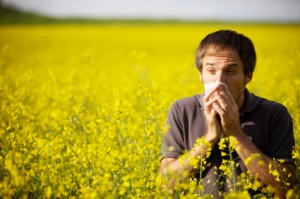
Recently I struggled with a bout of insomnia for several nights.
As I lay in bed watching the clock tick off the minutes, for the third night in a row, I pondered all the things that can cause sleepnessness.
There are several things that can bring on insomnia. Some of them are obvious and some not-so-obvious.
Daily exercise does help one to become more sleepy and to sleep deeper at night, but exercising too late in the day can actually elevate energy and metabolism to the point where it becomes difficult to fall asleep right away. Growth hormone (even for adults) is secreted during sleep, so inadequate sleep can actually sabotage your fitness when you exercise too late at night.
We all know caffeine will keep us awake, but caffeine in coffee drinks, teas (even flavored ones), sports drinks, and GU or Shot Bloks can be sneaky culprits. And pay attention to certain pain killers, they often contain caffeine as well. It’s easy to inadvertently consume caffeine too late in the day, and our bodies may not metabolize caffeine as quickly as we think.
Caffeine has a six hour half-life.
That means that the 100mg in a cup of coffee is still 50 mg of caffeine in your body 6 hours later. That’s still a pretty significant amount of caffeine. And that means, a whole six hours after that (twelve full hours after initial consumption) 25 mg still remains. So if you are a fairly caffeine-sensitive person, having that lunchtime espresso or energy drink in the afternoon will definitely keep you from feeling sleepy at 11pm, or later.
Keep in mind, an average glass of iced tea contains about 70 mg or so of caffeine, so that’s almost as much as a cup of coffee. And soda contains about 50 mg of caffeine. Try cutting off any caffeine by noon or so, and see if that helps your sleep.
Dehydration from exercise, alcohol, medications or just not enough liquids can keep you awake.
On a warm summer day, replacing the fluids that are lost in sweat is key. If you are outside exercising, remember to drink every 15 minutes and to drink about twice as much—or more—than you regularly do.
But don’t overlook drinking plenty of fluids in the cooler fall and winter months either. The dry air of winter can dehydrate your body as much as a hot sunny day.
Alcohol may seem just the thing to help make you sleepy can often disrupt your sleep.
But beyond a couple of drinks, the alcohol will dehydrate you and cause sleeplessness as well as its ability to mess up your normal sleep cycles.
If you are taking cold or allergy medicine, realize that it, too, may be drying you out and bringing on dehydration.
Ok, so just what does dehydration have to do with sleep, you ask? Good question.
When you are dehydrated, your blood volume drops. Our bodies are made to function optimally with a specific amount of blood volume, and slight variations in the volume can have a big effect.
If that optimal amount of blood volume drops, then the heart must pump harder to distribute a the blood, oxygen and nutrients throughout the body. For example, if you combine a hot day, not enough to drink, and too many diuretic substances (caffeine, alcohol, antihistamines, etc), you have, in effect, reduced your blood volume, and caused your heart to work harder.
Result–when you try to relax, your heart may be pounding as it tries harder to distribute blood through your body and this makes it harder to sleep.
Your diet can and does affect your sleep.
Eating foods that are starchy or sugary right before bed elevates your blood sugar too much, then there is a resulting crash in the middle of the night. Not only does that cause you to store fat (you don’t burn those calories off while asleep) but the buzz you may get from the sugar high may also keep you awake instead of sending you off to dreamland, and you awake groggy, tired and irritable in the morning.
Often a heavy meal eaten shortly before bed will also cause problems as lying down makes digestion difficult and slower, and the increase in gastric fluids may cause heartburn as well. Do you best to eat at least 2 hours prior to bedtime.
Other foods can actually help you sleep better. And deeper sleep will, of course, translate into feeling more rested and having more energy.
One of the most noticeable substances in food that aids sleep is tryptophan. Serotonin, an important brain chemical that helps with moods, can only be made from the amino acid tryptophan. Since tryptophan is the only thing that can make serotonin, low tryptophan levels equals increased rates of depression and sleep disturbances.
Dairy products actually contain tryptophan, along with naturally raised beef, (best sources are grass fed dairy and beef products), and turkey contains the most tryptophan (free-range turkey has the most).
Tryptophan is a component in protein. The high quality animal protein is the best source of tryptophan. So meat eaters tend to get more tryptophan than vegetarians who get their protein from beans, grains, nuts, and soy, which are poor sources of tryptophan.
But, unfortunately, conventionally raised animals are fed tryptophan-poor grains as feed. Grass is contains more tryptophan than grains. So grass fed cattle contain higher amounts of tryptophan than conventional grain-fed cows. The majority of poultry, meat and fish consumed in America is grain-fed, so unless you are eating grassfed meat, you probably aren’t a decent level of tryptophan. And similar for chicken and turkey. Free range and pasteured chickens and turkeys have much more tryptophan that the grain fed birds.
Did you know the right kinds and ratios of fats in your diet can have a significant effect on sleep?
How so?
New research shows the positive effects omega 3 fats have on sleep apnea. Sleep apnea is a condition where a sleeper has short periods of not breathing. Major symptoms include loud snoring and daytime sleepiness. People with sleep apnea often wake several times during the night, so instead of sleeping soundly and waking refreshed, they wake up groggy and tired.
Among the 320 adults in the most recent study, it was found that those with most severe sleep apnea also had a diet higher in omega 6 fats.
A similar study found that people with sleep apnea had the lowest amounts of omega 3’s in their blood.
Eating more omega 3 fats, such as those found in grassfed meats and wild-caught fish or supplementing with fish oil capsules, the study concluded, will help contribute to a better night’s sleep and improve sleep apnea episodes.
Choline is another important nutrient in food that plays a role in sleep. It’s the primary building block for acetylcholine … the neurotransmitter that affects thought, memory, sleep … even muscle control and balance. Lots of acetylcholine helps make your mind sharp, your memory clear, and gives you energy.
As you age, though choline drops, and one of the most noticeable symptoms of low choline is problems with falling asleep and staying asleep. Other symptoms include lack of energy, brain fog and confusion, irritability, and memory loss. Women need at least 425 mg a day, and men need 550 mg.
Choline is found in these food sources:
· Whole eggs–Go for free-range WHOLE eggs without antibiotics or hormones. Be sure to use the yolk, they contain a lot of choline.
· Chicken and turkey livers–Be sure to get organic, free-range chicken and turkey livers. These are also very rich in vitamin A, CoQ10 and iron.
· Pork and beef—The best choice here is organic, grass-fed meats for the proper balance of fats, zero hormones and antibiotics.
Beyond food issues, it is important to make sure you (and your partner, if you sleep with someone else) are getting adequate magnesium.
Magnesium is an important relaxing nutrient. Twitching, muscle cramps, tossing and turning, jumpiness and restless leg syndrome are all symptoms of inadequate and magnesium. Taking this supplement right before bed helps maintain the levels that are effective for restful sleep.
And if you are a middle-aged female, it is quite possible that your sleep issues may be due (at least partially) to hormone imbalances. The body’s natural progesterone and estrogen levels drop and fluctuating levels of estrogen can cause hot flashes at night, as well as restlessness.
Progesterone is a natural relaxing hormone, so when these levels drop, sleep quality goes as well.
And for men, as testosterone levels fall with middle age and beyond, sound, deep sleep begins to decrease as well. If you are middle aged, have your hormone levels checked. It may be time for a supplement.
For both men and women, thyroid problems can cause jitteriness and nervousness or, excessive fatigue and sleepiness during the day. Have your thyroid levels (T3 and T4) checked and take the thyroid medication that best suits your needs.
If taking simple measures like reducing your caffeine intake, changing your diet, and checking hormones don’t seem very effective, try a natural sleep aid like Melatonin. Melatonin is a natural substance the body makes in the dark (sleeping in as dark a room as possible helps production of this important hormone) and as you age you make less.
Melatonin is also a powerful antioxidant and helps regulate several body functions. Dosages vary. Try the smallest amount first and work up to a stronger dosage.
Here’s to a restful night’s sleep!
Till next time, stay healthy, lean and rested!
 Catherine (Cat) Ebeling RN BSN, is a back to basics diet and nutrition specialist. In addition to her advanced degree in nursing from a major medical school, she has spent the last 30 years intensely studying diet, health and nutrition. She also has a book titled "The Fat Burning Kitchen, Your 24 Hour Diet Transformation" that has sold over 60,000 copies worldwide, and has helped thousands of people transform their lives, lose weight and improve their health.
Catherine (Cat) Ebeling RN BSN, is a back to basics diet and nutrition specialist. In addition to her advanced degree in nursing from a major medical school, she has spent the last 30 years intensely studying diet, health and nutrition. She also has a book titled "The Fat Burning Kitchen, Your 24 Hour Diet Transformation" that has sold over 60,000 copies worldwide, and has helped thousands of people transform their lives, lose weight and improve their health.
Her mission is to help others prevent disease and live their best life ever.
Nutrition made Easy. Simple.Smart.Nutrition.
References:
Vaughn Gray, 10/08, Nutrition, Energy and Mood, Viewed 08/18/09. ReEvolution 2008. http://www.reevolution.com/html/nutrition_energy_mood.htm
Martha Kerr, 10/08, Omega-3 Fatty Acids Inversely Related to Sleep Apnea Severity, Viewed 08/17/09, Medscape 1994-2009. http://www.medscape.com/viewarticle/582688


